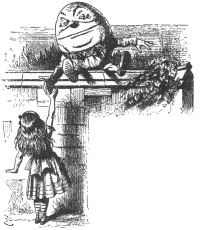Malcolm wrote:Urgyen Dorje wrote:
The space of possible textual interpretations in infinite. In terms of dharma texts, what makes a textual interpretation valid is the valid cognition of a realized being who can pick specific textual interpretations from many according to his or her realization and the needs of his or her students.
No, they cannot not. For example, you cannot interpret Dzogchen texts as theistic cosmology merely because you might have some people who come from a strong theistic background as students.
A teacher who was understood the meaning of Dzogchen texts would not teach them as theistic cosmology. But he or she might teach the bodhisattva precepts from the vantage point of Mind Only versus Middle Way dependent upon the students needs.
Malcolm wrote:The words and meanings of these texts are set in tradition, and whole correspondence theories between words and meanings are not popular in the West, that is precisely how the texts themselves unpack themselves. And teachers must teach according to the intention of the text, without adding or subtracting a word.
And it is only a realized being or somebody who understands the intention according to the oral tradition who is able to do this.
Malcolm wrote:The idea I'm playing with is Derrida's basic one liner that everything is context.
Urgyen Dorje wrote:Yes, I know, and I think Derrida is an intellectual dilettante — but hey, that's just me.
I don't own Derrida stock. I'm looking at ways of looking at texts that point back to the guru, the oral tradition, the lineage of blessings, and not just the texts themselves so we can get beyond an endless debate as to what texts really mean. Have realization? Hold oral tradition? Lineage holder? Then you know. Otherwise not.
Urgyen Dorje wrote: I think with dharma texts that context is the valid cognition of realized beings and the oral tradition of lineage masters that continues that valid cognition. Without that context those texts can be anything. And people do make them anything. So for me, there are dharma texts, marks on pages, and the unbroken lineage of realization that unlocks those texts. The marks on the page make no sense without the unbroken lineage of realization to unlock them. This is why it's absurd, from my side as a practitioner, when academics study texts without any reference to the living tradition, and when students attempt to study texts without any guidance from the living tradition. I think an approach like this shuts down academic chauvinism, false lamas, teacher-less students, modernists, all in one swoop.
Malcolm wrote:What you desire is the opposite of your method. And in any case, this notion of "valid cognition of realized beings" is highly problematic. How does anyone know who is realized and who is not? This is why texts have words, and those words have invariable meanings. Even if you are not realized, as long as you understand and convey the the meaning, there is always a possibility someone can wake up from the meaning you have communicated as long as you have a valid lineage.
If we decide that there is a life to Buddhist texts beyond marks on paper, and if we recognize the oral tradition of the lineage to be what unlocks the meaning of those marks on a piece of paper-- then we examine a teacher, his or her qualifications, and his or her qualities, and study those texts with that person.
